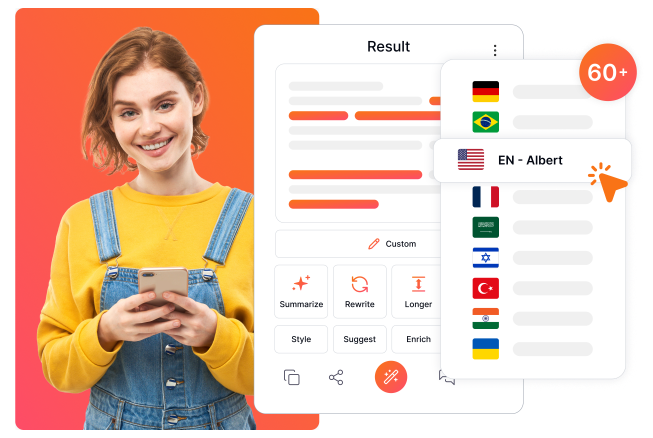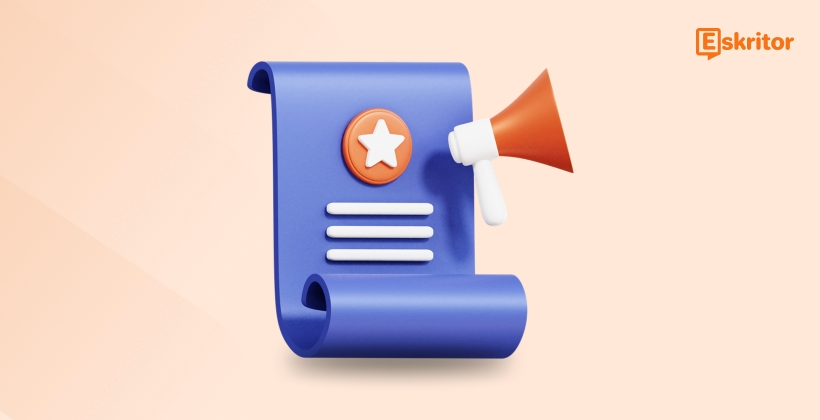The Role of AI in Modern Editing Practices
The Role of AI in Modern Editing Practices
Blog Article
Top AI Writing Tools to Boost Productivity
Synthetic intelligence (AI) writing technology has developed rapidly in the last decade, reshaping the way we develop and communicate with prepared content. From grammar correction tools to AI-generated novels, the options look limitless. But wherever exactly is that engineering heading? Let's investigate the inventions, problems, and potential potential of AI Editing.

How AI Writing Engineering Operates Today
At their key, AI writing engineering utilizes Organic Language Control (NLP) and machine learning. These technologies enable designs to know, produce, and improve human language. Tools accessible nowadays excel at projects like:
1. Material Development
AI has reached a place wherever it can make complete blog articles, social media marketing captions, and even information articles. Some types are capable of mimicking individual writing models therefore effectively that unique between AI- and human-written content has become increasingly difficult.
2. Grammar and Design Recommendation
AI-powered publishing personnel don't only check for grammar and punctuation errors; additionally they give recommendations to improve tone, understanding, and syntax, creating complex publishing available to a wide audience.
3. Message Evaluation
AI can evaluate the mental tone of a piece, enabling companies to determine how their communications can resonate with readers. This is especially useful in advertising and customer interaction.
The Recent Styles in AI Writing Engineering
A few traits are shaping another phase of AI-powered publishing tools:
• Personalization
AI publishing engineering is increasingly effective at tailoring material to specific preferences. Designs may adjust to a user's publishing model, ensuring the productivity feels authentic.
• Multilingual Functions
Several AI resources are growing their world wide reach by offering enhanced interpretation features and help for numerous languages.
• Enhanced Study Functions
AI tools today get the ability to analyze huge amounts of knowledge and offer fact-checked, well-researched publishing in seconds, simplifying the process for professionals in industries like law, financing, and journalism.
What the Potential Keeps for AI Writing Technology
1. Increased Creativity
While current AI is good at generating material, their creativity is still limited by patterns within their education data. Future AI isn't only estimated to help but to produce original, informative operates that problem human imagination.
2. Easy Venture
Envision an AI that performs along side you in real-time, completing your sentences, performing live edits, and also brainstorming ideas. AI publishing resources might shortly become co-authors, allowing imagination to flow uninterrupted.
3. Ethical and Available Style
With growing concern about plagiarism, misinformation, and error, developers will work toward more translucent AI training procedures and moral implementation. Potential tools will likely offer more extensive citations and steps to make certain accountability.
Challenges and Criteria
The evolution of AI writing engineering isn't without hurdles, including:
• Moral Dilemmas

Who owns material created by AI? Just how can we assure AI-generated content is not scattering misinformation? These debates stay unresolved.
• Human-AI Balance
May AI match individual imagination or completely change specific roles? Many writers and musicians worry about their relevance within an AI-driven world.
• Supply Split
Not all organizations or regions have similar use of cutting-edge AI tools, raising questions in regards to the impact with this engineering on world wide inequality.
Changing the Way We Write
AI publishing engineering continues to be in its infancy in comparison to its potential. Whether you are students crafting documents, a content marketer targeting specific readers, or perhaps a novelist seeking enthusiasm, AI tools can continue steadily to revolutionize the publishing process. The following decade promises breakthroughs that mix human ingenuity with unit intelligence, making a future wherever writing is more effective, accessible, and impactful than actually before.
Report this page